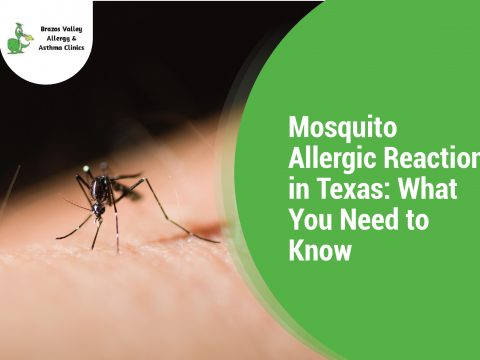- 979-485-9287
- office@bvallergy.com
-
 979-251-7804
979-251-7804
Is it Allergy vs. Cold? What are the Differences?

Everything You Should Know About Eye Allergy
September 3, 2019
How to Manage Winter Allergies
January 22, 2020It is not uncommon for people to occasionally have congestion and a runny nose. As a matter of fact, according to the Centers for Disease Control and Prevention, adults can expect to have two to three colds a year while the children are expected to have even more colds every year. Just like colds, allergies are also very common among adults and children with more than 50 million Americans suffer from allergies each year according to the American College of Allergy, Asthma & Immunology.
Although the symptoms for colds and allergies are often similar, however, they are different in terms of causes, symptoms, and duration. Identifying which condition you’re experiencing will help you get the best possible treatment.
So, what are the differences between a cold and an allergy?
Allergies vs.Cold
It’s sometimes difficult to tell whether you have hay fever or a common cold because their symptoms are almost the same. Let us take a closer look at the differences between the two health conditions.
Common cold
The common cold is a viral infection on your nose and throat that is usually harmless. Children younger than 6 years are more susceptible to colds. People who have colds usually recover in a week or 10 days.
Some of the symptoms of common colds include:
- Runny or stuffy nose
- Sneezing
- Sore throat
- Congestion
- Slight body aches
- Mild headache
- Malaise
Allergic Rhinitis
Hay fever or allergic rhinitis occurs when the body’s immune system overreacts to something it was exposed to. It then causes an allergic response to allergens such as pollen, dust mites, or pet dander. When the allergen comes into contact with the sensitive lining of your nose and sinuses, it sets off the allergic response. The symptoms then manifest through cold-like signs such as a runny nose, itchy eyes, congestion or sneezing. There are two types of allergic rhinitis that you might have: seasonal and perennial. For those who have perennial allergic rhinitis, you might have nasal allergies for an hour or more on most days throughout the year. On the other hand, those who have seasonal allergies may only have allergies during summer, spring, or fall.
Some of the symptoms you might experience include:
- Itchy nose
- Postnasal drip
- Sneezing
- Runny nose
- Nasal congestion
- Pain around your temples and forehead
- Earaches
- Watery eyes
How to Tell the Difference
Colds and allergies have overlapping symptoms that it might be difficult to tell the two conditions apart. We can tell their difference according to their duration, the time where the conditions usually appear, and other symptoms that they don’t share.
As to the Duration
Symptoms of a common cold usually only last for a week or two. However, allergies may last longer if you don’t get treated or remove the trigger. As I’ve mentioned earlier, people who have allergies may experience the symptoms longer especially during summer, spring or fall.
As to the Time Where the Conditions Appear
Symptoms for common colds gradually appear over a day or two while the symptoms for allergies may suddenly come out of nowhere. Symptoms for allergies also occur at a more predictable time of the year compared to colds.
Symptoms Colds and Allergies that They Don’t Share
While colds and allergies share similar symptoms, they also symptoms that they don’t share. Colds are more likely to cause fatigue, sore throat, and fever. However, allergies are likely to cause itchy eyes, wheezing, and skin rashes such as eczema or hives.
Diagnosing Colds and Allergies
Generally, you don’t need to see a doctor for a cold. However, if you’ve been experiencing discomfort with your symptoms, you can have yourself checked. If your doctor thinks that you have a bacterial infection such as pneumonia or strep throat, you might be required to take other tests to have a more accurate diagnosis.
If you think that you have allergies, it is best to see an allergist or an immunologist. The doctor may perform a series of tests that can be used to diagnose allergies and pinpoint what triggers it. Undergoing a series of tests is important because allergies can cause life-threatening allergic reactions. Being knowledgeable about your symptoms may lessen the risk of having severe allergies.
Should you have any questions regarding the symptoms of cold or allergies, you can visit Brazos Valley Allergy & Asthma Clinics. They provide professional services allergy, asthma, and immunology services to clients using established methods and technological advances. Schedule a meeting with them and get yourself checked.
References:
Healthline
Medical News Today
Mayo Clinic




